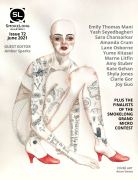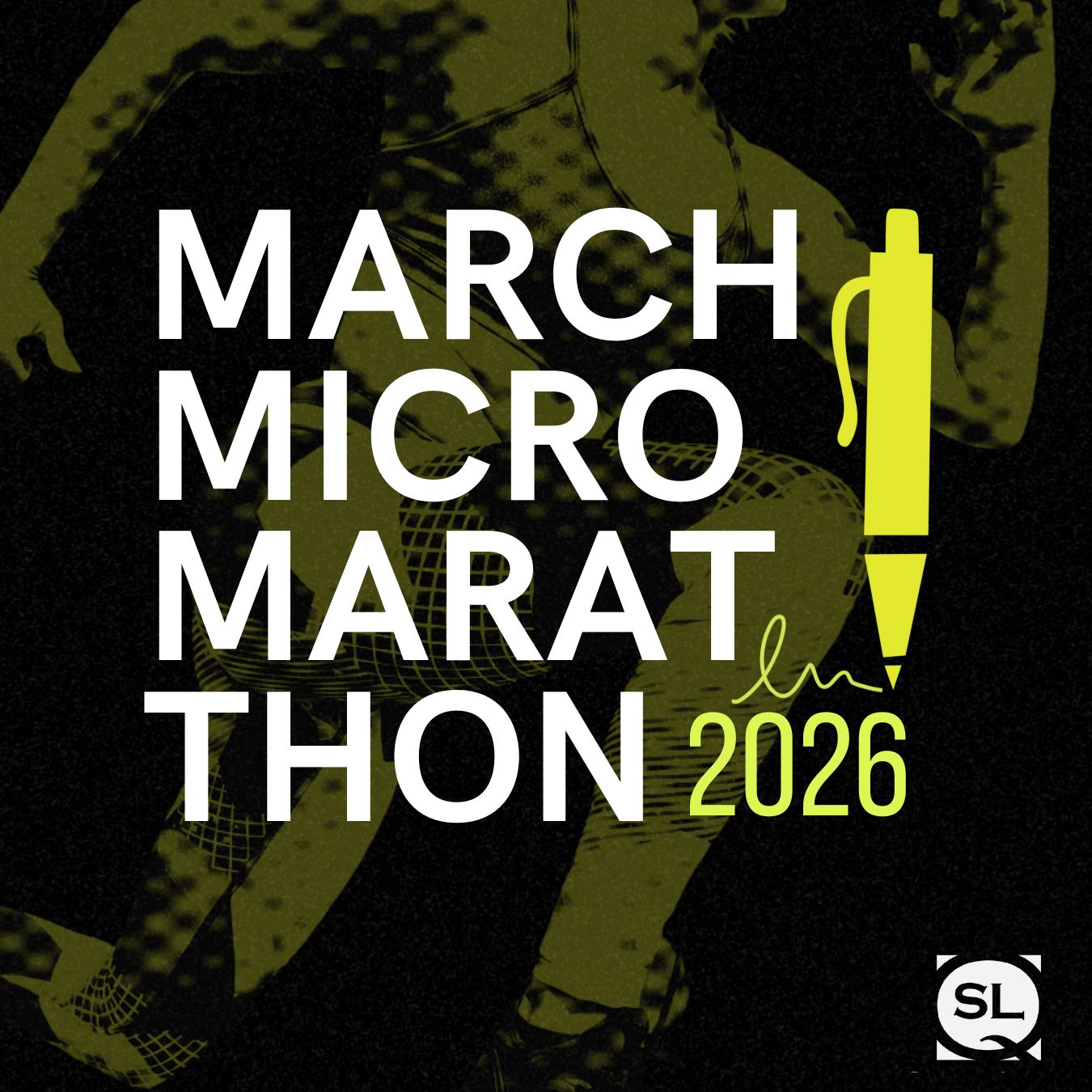In “The Goat in the Math Problem,” what might the area of grass the goat is tethered to represent? I thought I had a pretty good idea toward the beginning of the story, but by the end, it had changed.
The area of grass might represent the space, the boundaries, not only animals, but also humans, are expected to live within. It’s your grass, your playground, you’re free to enjoy it as long as you adhere to the rules of play written on a sign at the entrance, honor the lines mapped in a booklet you are provided with. If you digress, or disregard these, another person or your own conscience will hold a placard to your face, keep you in check. The metaphorical tether of close relationships, moral values, or societal norms stretches only as far as the perimeter or circumference of the grass patch allotted to you, within which you can exercise your freedom, express your emotion, and pursue your happiness.
I was surprised when I read the boy would only lose one meal as a result of losing the goat. Because I’d come to see the goat’s life as precious, I expected a worse punishment to match what I felt the goat’s life was worth. Was this intentional on your part, to surprise the reader in this way?
It might come as a surprise to many, but in some patriarchal societies, a son is seen as the bearer of the family name, the keeper of the gene repository, and the upholder of long-held traditions. The birth of a boy is a sign of good fortune, a cause for celebration, while a girl’s birth is a curse, a divine punishment. The rules, expectations, and boundaries are different for girls and boys. Boys, young heirs, are smothered in love and tenderness, treated to privilege and entitlement while growing up. Most of their mistakes and misjudgments are overlooked by parents or settled with an apology at the most and in rare cases meted out with a mild punishment. I imagine the boy in the story belonging to one such family. He knows the worst that can fall on him is missing a meal and he’s ready to live with that.
Did this piece begin with an actual mathematical word problem as the prompt? I’d love to know how it came about.
This one started in Cheryl Pappas’s Hermit Crab Workshop that I took in February—can’t tell you how happy I am at my decision to register for the workshop. Cheryl’s prompt was to write a story starting with a math problem. About this particular problem, my son and I racked our brains to crack it when he was practicing for Math Counts in middle school. It must have lodged itself somewhere in my head and the workshop prompt coaxed it out. But the story that followed, the turn it took, the arc the rope traced, caught me by surprise. Never had I imagined my captive goat would lead me to the corridors of SLQ!
What do you hope the reader steps away from this piece feeling or thinking about?
I hope readers, after reading this story, emerge a little kinder and a lot more empowered to rebel, to challenge the status quo. An ant sidestepped, a wounded bird placed in a shoebox, a spider dropped away from the house are small kindnesses that we, humans, the superior-most species, must exercise and encourage our children to do the same to preserve humanity, which is a fading virtue. Though we can’t save every life everywhere, can’t stanch the ubiquitous bleeding, the least we can do is pay heed to that thin inner voice, believe in it, and act promptly to rescue or help one animal, one person, without delay, without waiting for a signal or a nod from someone. If that requires mutiny or straying from the long-paved course, so be it.
What are you looking forward to reading this summer?
I am a slow reader. I go back to re-reading multiple times the lines and paragraphs that I love and feel inspired by. This summer, I hope to finish reading Yaa Gyasi’s Homeland and Jhumpa Lahiri’s Whereabouts. Besides these, I am planning to read: Sudha Balagopal’s novella-in-flash, Things I Can’t Tell Amma; Sara Hills’ flash collection, The Evolution of Birds; Sarah Freligh’s poetry collection, Sad Math; and Damhnait Monaghan’s novel, New Girl in Little Cove.



 In its third year, The March Micro Marathon will be, as usual, a prompt-a-day whirlwind for 24 days. You’ll exchange drafts of micro fiction, non-fiction, and prose poetry in small groups and gather for a series of online events (all recorded for participants unable to attend live). We’ll finish with 3 competitions, and participants who are not already in SmokeLong Fitness will be invited to workshop with SmokeLong Fitness until the end of April!
In its third year, The March Micro Marathon will be, as usual, a prompt-a-day whirlwind for 24 days. You’ll exchange drafts of micro fiction, non-fiction, and prose poetry in small groups and gather for a series of online events (all recorded for participants unable to attend live). We’ll finish with 3 competitions, and participants who are not already in SmokeLong Fitness will be invited to workshop with SmokeLong Fitness until the end of April!